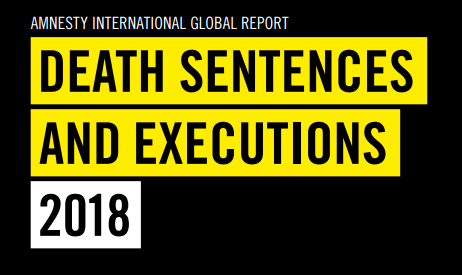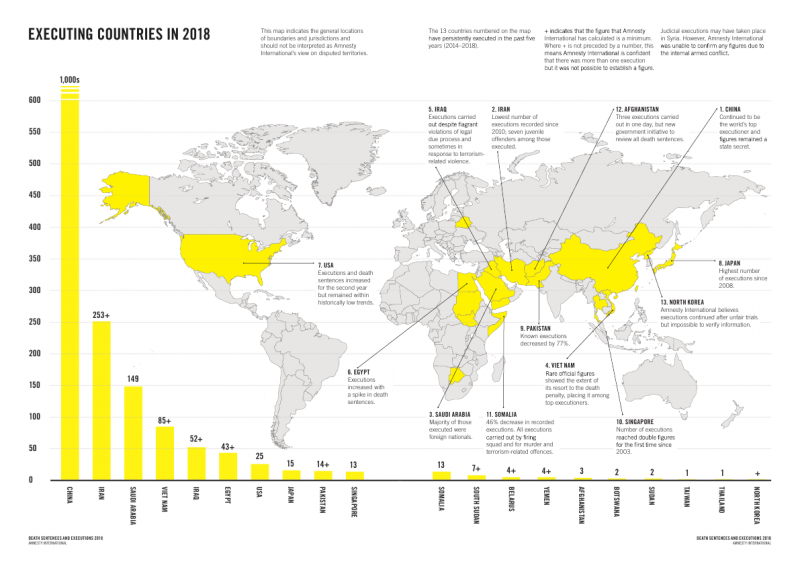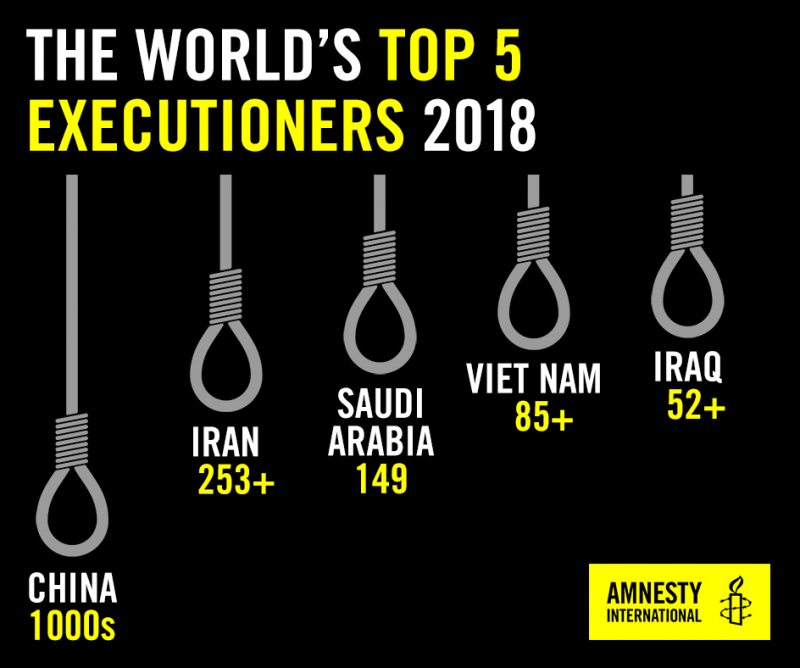Amnesty International 2018 death penalty report: Belarus still last executioner in Europe
Belarus executed four persons in 2018, as compared to two executions in 2017, Amnesty International said in an annual death penalty report. Aliaksei Mikhalenya and Viktar Liotau were executed in May, and Ihar Hershankou and Siamion Berazhnoy in November.
The last time another country in the region carried out executions was in 2005. This makes Belarus the last and only executioner in Europe, while Kazakhstan, the Russian Federation and Tajikistan continued to observe moratoriums on executions.
Amnesty International stresses that executions in Belarus are classified as a state secret and fair trial standards are violated in capital cases. It is also alarmed by Belarus’ continued failure to respect the requests from the UN Human Rights Committee not to carry out executions, including Aliaksei Mikhalenya, Ihar Hershankou and Siamion Berazhnoy executed in 2018.
“The UN Human Rights Committee also expressed concern that individuals facing the death penalty are being denied a fair trial, they and their families are not notified about the date of execution, the bodies of individuals who are executed are not returned to their relatives and the burial sites are not disclosed. Furthermore, the Committee against Torture expressed deep concern at findings by the UN Human Rights Committee that confessions of guilt had been obtained under duress or torture and at reports that persons on death row were detained in solitary confinement,” the report said.
Global executions fell by almost one-third last year to the lowest figure in at least a decade, Amnesty International said.
Following a change to its anti-narcotics laws, executions in Iran – a country where the use of the death penalty is rife – fell by a staggering 50%. Iraq, Pakistan and Somalia also showed a significant reduction in the number they carried out. As a result, execution figures fell globally from at least 993 in 2017, to at least 690 in 2018.
“The dramatic global fall in executions proves that even the most unlikely countries are starting to change their ways and realize the death penalty is not the answer,” said Kumi Naidoo, Amnesty International’s Secretary General.
“Despite regressive steps from some, the number of executions carried out by several of the worst perpetrators has fallen significantly. This is a hopeful indication that it’s only a matter of time before this cruel punishment is consigned to history, where it belongs.”
However, it wasn’t all good news. Amnesty International found increases in executions in Belarus, Japan, Singapore, South Sudan and the USA.
“The positive news of 2018 has been marred by a small number of states who are shamefully determined to buck the trend,” said Kumi Naidoo.
“Japan, Singapore and South Sudan reported their highest levels of executions in years, and Thailand resumed executions after almost a decade; but these countries now form a dwindling minority. To all the countries that still resort to the death penalty, I challenge you to act boldly and put a stop to this abhorrent punishment now.”






